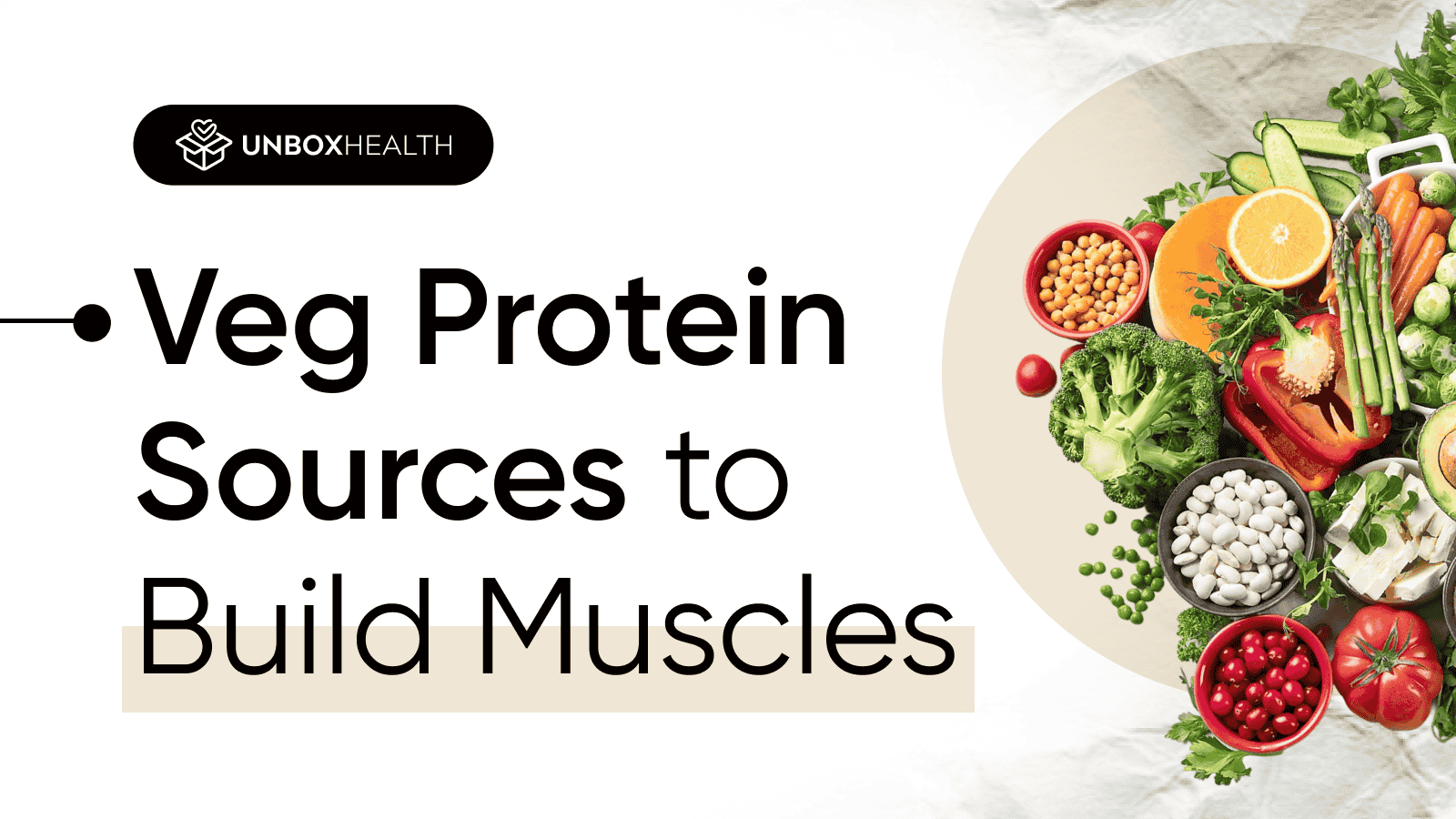“Remember when you had first started focusing on vegetarian bodybuilding, the biggest worry wasn’t working out, it was the protein. How do you pack enough good-quality protein without meat? It felt like walking through a maze. Turns out, science shows us the way out of that maze and it’s all about protein quality”.
Why Protein Quality Matters
Your body isn’t just counting grams of protein, it cares about how usable that protein is. That’s where PDCAAS (Protein Digestibility–Corrected Amino Acid Score) steps in. It compares the essential amino acid profile to what your body needs and adjusts for how well it’s absorbed. The scale tops out at 1.0, the gold standard for muscle-friendly proteins [1].
Think of it like finding truly useful building blocks in a castle kit. Some blocks are smooth and fit perfectly (PDCAAS 1.0). Others might look okay but fall short in key areas. For muscle building, you want blocks that fit snugly.
Top Vegetarian Protein Sources (Per 25 g Protein)
Here’s a breakdown rounded to the nearest PDCAAS, from real peer-reviewed studies:
| Source | PDCAAS (≈) | Highlights |
|---|---|---|
| Whey Protein (milk-derived) | 1.0 | Complete, highly digestible protein [1] |
| Cottage Cheese / Paneer | 1.0 | Dairy-based, full amino profile [1] |
| Whole Milk | 1.0 | Rich and absorbable [1] |
| Soy Protein (isolate/concentrate) | ~1.0 | Top-tier plant source [1][2] |
| Tofu | ~0.70 | Lower PDCAAS, but strong DIAAS (~0.97) [3] |
| Soya Chunks / Flour | ~0.98–1.0 | Reflects soy’s high quality [1] |
| Chickpeas | ~0.74 | Limited in methionine [4] |
| Kidney Beans (cooked) | ~0.648 | Lower legume score [5] |
| Lentils | ~0.65 | Needs complementary partners [4] |
| Whole Wheat (grain) | ~0.40–0.48 | Lysine-limited, less digestible [3][6] |
Whey Protein: The Benchmark
When we talk about muscle gain, whey protein sets the bar. With a PDCAAS of 1.0, it not only provides the full spectrum of essential amino acids, it’s also rapidly absorbed and highly bioavailable [1]. That makes it a favorite among those who include dairy in their diets.
Smart Plant-Based Picks
Vegetarians don’t have to compromise. Soy protein isolate and concentrate are star players with PDCAAS values that rival whey [1][2]. And while tofu’s PDCAAS may seem low at ~0.70, its DIAAS (Digestible Indispensable Amino Acid Score), a newer, more accurate measure is around 0.97, meaning its real-world protein value is stronger than it first appears [3].
Legumes like chickpeas, lentils, and beans are modest individually but when combined with grains, they work intelligently together to form complete proteins. Traditional meals like khichdi, rajma-rice, or hummus-and-pita naturally optimize this synergy.
Key Takeaways for Muscle-Minded Vegetarians
- Dairy proteins: whey, paneer, milk are the benchmark for complete, digestible protein.
- Soy proteins offer powerful plant-based alternatives with scores nearly equal to whey.
- Tofu shines on the DIAAS scale and is a versatile option.
- Legumes and whole grains are nutritious and effective when paired wisely.
Understanding PDCAAS and DIAAS helps tailor your protein choices for results, not just intake.
Final Thoughts
You absolutely can build muscle on a vegetarian or even largely plant-based diet. The secret is choosing proteins that are not just abundant but usable. Combine intelligent food pairings (like pulses with grains), and lean on high-quality sources like soy or dairy if your diet allows. With that strategy, your plate becomes a tool, not a compromise.
Unbox Health has rated both plant and whey protein supplements based on lab-tested quality and label accuracy. Check out their detailed reviews and ratings.
Check out unbiased lab-tested ratings of “Protein Supplements” on Unbox Health along with their detailed lab reports.
About Unbox Health
Unbox Health: India’s First Ratings Platform for Packaged Foods and Health Supplement Tired of biased reviews and never-ending claims? At Unbox Health, every product is tested at multiple premium FSSAI-approved NABL-accredited international labs – 100% independently, transparently, and without any brand involvement.
- 100% Transparency: All lab reports are publicly published.
- Zero Hidden Agendas: Products are market-bought with no brand involvement.
- Accurate Testing: Samples tested at up to 3 premium international labs
- Actionable Ratings: Based on Label Accuracy, Toxicity & Nutritional Profile.
Head over to Unbox Health and let the data guide your consumption choices.
References:
- Schaafsma, G. (2000). The protein digestibility-corrected amino acid score. Journal of Nutrition, 130(7), 1865S–1867S.
- Plaza, M., et al. (2021). Protein quality of soy and the effect of processing: A quantitative review. Food & Function, 12(13), 566–579. https://doi.org/10.1039/D1FO01201A
- Rutherfurd, S. M., Fanning, A. C., Miller, B. J., & Moughan, P. J. (2015). PDCAAS and DIAAS differentially describe protein quality in growing male rats. Journal of Nutrition, 145(2), 372–379. https://doi.org/10.3945/jn.114.195438
- Young, V. R., & Pellett, P. L. (1994). Plant proteins in relation to human protein and amino acid nutrition. American Journal of Clinical Nutrition, 59(5 Suppl), 1203S–1212S.
- Mathai, J. K., Liu, Y., & Stein, H. H. (2017). Digestible indispensable amino acid scores (DIAAS) for animal and plant proteins. British Journal of Nutrition, 117(4), 490–499. https://doi.org/10.1017/S0007114517000125
- Boye, J., Wijesinha-Bettoni, R., & Burlingame, B. (2012). Protein quality evaluation using PDCAAS. Food Research International, 45(4), 1603–1610. https://doi.org/10.1016/j.foodres.2011.05.046
